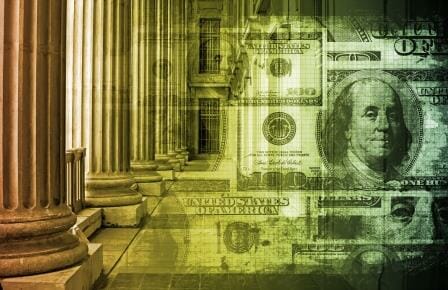The use of Bitcoin has grown in Russia since the war began. Citizens see in digital currencies the way of not losing purchasing power, while the powerful, the way to avoid sanctions.
The economic sanctions imposed against Russian oligarchs may have a weak point: cryptocurrencies. The data shows that interest in these assets has skyrocketed in Russia. There has been much speculation that if the country’s great tycoons manage to transform their rubles into Bitcoins, they will be able to avoid the international siege to which their accounts are subject. The very nature of cryptocurrencies, which live in their own system not controlled by central banks, would allow them to secure their funds to transform them into dollars when everything happens. Moreover, this can happen without losing purchasing power, since unlike the ruble, rather than sunk in recent days, Bitcoin rises. Cryptocurrency movements do not require names and surnames, as is the case with bank transactions, affected by the disconnection of the SWIFT payment platform and, as of Thursday, by the restrictions imposed by Visa, Master Card, and American Express.
So are cryptocurrencies the oligarchs’ escape route from the economic sanctions imposed by the West? Maybe in part. Although, presumably, most of his assets (some leaders accumulate tens of billions of euros) were already safe. “We must bear in mind that these oligarchs may have their tax residence in another State or have groups of companies that operate in different jurisdictions, so it is possible to avoid, at least partially, the new sanctions,” says Moisés Barrio, lawyer of the Council of State and author of the book Cryptoactives. Regulatory issues and challenges (Wolters Kluwer, 2021).
There are Reactions
As the financial newspaper Les Echos anticipated, months ago some of these tycoons began to transfer money to cryptocurrencies. What we are not certain of is whether they can recover it. Their fate will largely depend on how far digital currency exchanges, also known as exchanges, decide to get involved.
On Monday, February 28, representatives of the White House and the US Treasury met with some of the largest exchanges to ask them to stop operating in Russia to ensure compliance with the sanctions imposed by Washington. On Thursday, one of the major platforms, Binance, had already refused. “We are not against anyone. We differentiate between Russian politicians who start wars and normal people. Many Russian citizens do not agree with the war,” said the company’s founder and CEO, Chanpeng Zhao. On Friday came the refusal of Coinbase, another of the big ones. “We believe that everyone deserves to have access to basic financial services until the law says otherwise,” the platform’s chief executive officer, Brian Armstrong, said on Twitter. “Sometimes the hardest thing about having power is to know when not to use it,” Kraken founder Jesse Powell claimed to justify his refusal.
Setting limitations goes against the very spirit of cryptocurrencies, argue many enthusiasts of this movement. Although most exchange houses abide by the instructions of the EU and the US to stop operating in Russia, others are in favor of blocking their services only to certain accounts. For that, you need to know to which ones to go.
The Importance of Platforms
When people want to buy a Bitcoin, they need to find someone to sell it to. There are two ways to do it: on your own, by agreeing to an online transaction with an interested party (and running the risk of experiencing a fraud), or by using an exchange platform, possibly regulated or not. The vast majority opt for regulated exchanges, such as Binance, Kraken, or Coinbase, precisely in search of guarantees.
These platforms are key for two reasons: they require identification from their clients and they are the only large holders of Bitcoin. This cryptocurrency has its support on Blockchain, a technology that allows you to see the amount of money that each address or user has. “The addresses with the most Bitcoins are those of the exchanges. The oligarch who wants to buy large amounts of Bitcoins will necessarily have to go through one of these platforms”, says Javier Pastor, sales director of the Spanish platform Bit2Me.
How to Get to the Oligarchs
The president of the European Central Bank, Cristine Lagarde, already said on February 25, the day after the invasion began, that the EU needs legislation that regulates cryptocurrency transactions, among other things to control the capital movements of the leaders. Russians. The law already provides mechanisms to intervene in accounts or wallets of Bitcoins or other cryptographic currencies.
Whoever wants to deposit large amounts of dollars from Bitcoins in Swiss bank accounts, much to the liking of the Russian oligarchs, or in some tax haven will automatically appear on all radars. For the French economist Thomas Piketty, pursuing these movements is actually simple: “It would be enough for Western countries to finally create an international financial registry that would keep track of who owns what in the different countries,” he wrote this Sunday in EL PAÍS, a Spanish newspaper.
You can also intervene selectively before the currency conversion takes place. “There are companies, such as exchanges, that can mark wallets that have been identified as being related to the Russian government or its collaborators, just like those that come from hacking or drug trafficking. These transactions should be monitored and blocked, but not all Russian citizens,” says Jorge Soriano, co-founder, and CEO of the cryptocurrency exchange Criptan.
Blocking only accounts on a blacklist is the preferred option for many industry professionals. “It is complicated to do, but it can be achieved if the intelligence services identify Bitcoin addresses of Putin or other key people and exchanges are then told not to accept exchanges from them,” argues Raúl Marcos, CEO of the Carbonoexchange.com.
By Audy Castaneda











